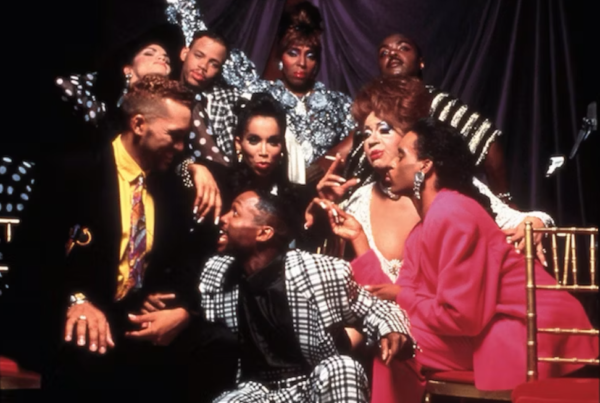
Credits: Le Journal Du Dimanche
The 49th Césars Awards ceremony, held in Paris on February 23, marked the return of women’s voices in the French film industry. Being one of the most anticipated annual cultural events in France, the ceremony highlights major topics of public interest from a variety of lenses. From courageous speeches to the many Female award winners, this year’s ceremony shone the spotlight on trailblazing women.
It was no secret that this year’s jury favorite was Anatomy of a Fall, directed by Justine Triet. No stranger to success on a domestic and international scale, the film won the Palme d’Or at the Cannes Film Festival and two Golden Globe Awards this year. It’s an American sweetheart, too, with five nominations for the Oscars. Notably, the Césars ceremony was an incredible triumph, as Triet’s victory as Best Director made her only the second woman to receive such high praise (the last being Tonie Marshall for Vénus Beauté in 2000). During her acceptance speech, Triet did not hesitate to insist on the necessity to enlarge women’s place within movie directing, especially considering how no woman had been nominated in the same category last year, which generated intense controversy. The director also took the opportunity to advocate for the importance of listening to women’s voices in our society, which echoed with other speakers’ interventions that evening.
French actress Judith Godrèche’s much-anticipated speech denounced sexist and sexual violence. A victim herself, she wanted to break the silence against this violence, which is so common in the film world and thus, the elephant in the room. Although she criticized the lack of courage and real support saying, “I am speaking, but I cannot hear you,” she empathized with this fear, having experienced it herself. At 15 years old, Godreche recalled not wanting to be rejected from the profession by daring to denounce well-renowned directors who harassed her. Years later, however, she took the lead to invite the large audience to join her in defending this fight against sexual violence. While she expressed fear of betraying the cinema community, she proclaimed that there is one community she could never betray: that of “anonymous people who will hopefully think there may be a chance to tell their story in turn.” The aim of her intervention was explicit: to ensure that real measures are taken within film institutions so that people can work in full safety. The famous actress’s speech did not go unnoticed, receiving a resounding standing ovation and countless messages of support and gratitude. Other actresses like Juliette Binoche, Virginie Efira and Mona Achache openly congratulated Judith Godrèche at the Cesar after-party, or during interviews. As a viewer on the other side of the screen, you can’t help but be struck by Godrèche’s grit, sincerity, and self-assurance.
However, it’s important to remember that she isn’t alone — other women in the film industry have also spoken out in the past, but their actions haven’t received the same recognition. This was apparent at the Césars ceremony four years ago, when actress Adèle Haenel stormed out of the room when Roman Polanski, a director accused of sexual violence by eleven women, won the Best Director award for his movie J’accuse. Haenel’s symbolic gesture provoked a controversy in the film industry, some saying that it was necessary to “separate the man from the artist” and that her reaction was out of proportion. The actress was therefore highly criticized for causing a scene, her message not taking off the way it should have. Although highly controversial, Haenel undoubtedly opened new doors by breaking this taboo so predominant in French cinema.
Evidently, the evening, whose initial aim was to celebrate French cinema, also provided a lesson in the art of renewing oneself and not serving as an excuse for sexist or sexual violence. After so much silence, speech is finally beginning to break free, little by little. Once denied, silenced and even rejected by French cinema, women are asserting themselves and aspiring to a better era, using the scene of the Césars as a podium to claim their rights.
Other posts that may interest you:
- The Trouble with ‘Ecocide’
- Carbon dioxide removal – hit or miss?
- Local Victories for Turkish Opposition — A Sign of Hope?
- Are France and Japan a Mismatch Made in Heaven?
- A Reflection on Dark Tourism
Discover more from The Sundial Press
Subscribe to get the latest posts sent to your email.





